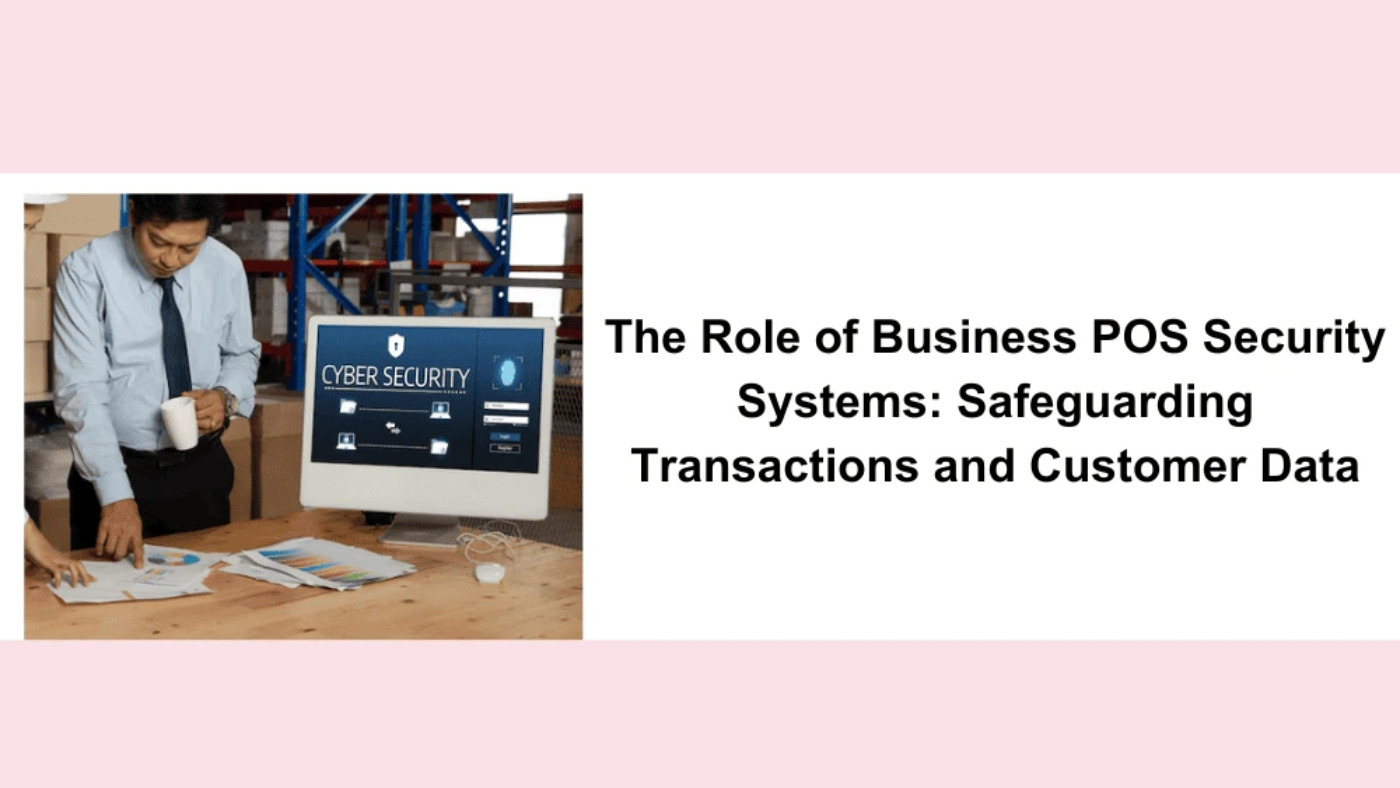Introduction
In today’s digital economy, businesses rely heavily on Point of Sale systems in Dubai to process transactions efficiently. However, as technology advances, so do security threats targeting sensitive customer and financial data. A robust POS security system is crucial to safeguarding transactions, preventing fraud, and maintaining customer trust. This blog explores the importance of POS security, key security measures, and best practices businesses can implement to protect their operations.
Why POS Security Matters
POS systems handle critical customer data, including credit card details and personal information. Cybercriminals often target POS networks to exploit vulnerabilities, leading to data breaches, financial losses, and reputational damage. Implementing a strong security system not only ensures compliance with industry regulations but also protects businesses from fraud, hacking attempts, and internal theft.
Common POS Security Threats
Understanding the risks associated with POS systems is the first step in strengthening security. Here are some common threats:
- Malware and Ransomware Attacks – Cybercriminals install malicious software to steal payment data or lock access until a ransom is paid.
- Phishing Scams – Fraudulent emails or fake login pages trick employees into revealing login credentials.
- Skimming Devices – Hardware-based attacks where external devices capture payment information.
- Weak Passwords and Unauthorized Access – Default or easily guessable passwords leave systems vulnerable to hacking.
- Unsecured Network Connections – Open or poorly encrypted networks can be intercepted by cybercriminals.
- Lack of Software Updates – Outdated POS software can contain vulnerabilities that attackers exploit.
Essential POS Security Measures
To protect customer data and business transactions, companies must implement comprehensive security solutions within their POS systems. Below are some essential security measures:
1. End-to-End Encryption (E2EE)
Encrypting payment data from the moment a card is swiped until it reaches the bank ensures that no sensitive information is exposed during transmission.
2. Tokenization
This process replaces sensitive cardholder data with unique identification symbols (tokens), preventing cybercriminals from accessing actual payment details.
3. EMV Chip Technology
Unlike magnetic stripe cards, EMV chips generate unique transaction codes, reducing the risk of card duplication and fraud.
4. PCI DSS Compliance
Adhering to the Payment Card Industry Data Security Standard (PCI DSS) ensures businesses follow best practices in handling payment information securely.
5. Multi-Factor Authentication (MFA)
Requiring additional authentication, such as one-time passwords (OTP) or biometric verification, adds an extra layer of security against unauthorized access.
6. Firewall and Network Security
Firewalls help monitor and control incoming and outgoing network traffic, preventing unauthorized access to the POS system.
7. Regular Software Updates and Patching
Keeping POS software up to date eliminates vulnerabilities that hackers may exploit.
8. Employee Training and Awareness
Educating employees about security best practices helps prevent phishing attacks, password leaks, and mishandling of payment data.
Best Practices for POS Security
To ensure a secure POS environment, businesses should adopt the following best practices:
✅ Use Secure Payment Gateways – Choose trusted and PCI-compliant payment processors.
✅ Restrict Access Controls – Limit access to POS systems to only authorized personnel.
✅ Monitor Transactions Regularly – Detect suspicious activity early by conducting routine security audits.
✅ Install Antivirus and Anti-Malware Solutions – Protect systems from malware and unauthorized intrusions.
✅ Implement Role-Based Access Control (RBAC) – Ensure employees can only access the parts of the system relevant to their job roles.
✅ Use Strong and Unique Passwords – Avoid default passwords and enforce periodic password changes.
Future Trends in POS Security
As cybersecurity threats evolve, businesses must stay ahead by adopting advanced security technologies in POS systems. Future trends include:
✔ Artificial Intelligence (AI) and Machine Learning – AI-driven fraud detection systems analyze transaction patterns to detect anomalies in real-time. ✔ Biometric Authentication – Fingerprint and facial recognition provide a more secure alternative to traditional passwords. ✔ Cloud-Based POS Security – Cloud computing enhances real-time monitoring and enables automatic security updates. ✔ Blockchain Technology – Ensures tamper-proof transactions with decentralized encryption methods. ✔ Contactless Payments and Tokenization – Reduces risks by eliminating the need for direct card information storage.
Conclusion
A secure POS system is essential for businesses to protect transactions, customer data, and financial integrity. By implementing advanced security measures, staying compliant with industry regulations, and training employees on best practices, businesses can safeguard their POS systems against potential cyber threats. Investing in robust POS security solutions today ensures long-term success and customer trust in the competitive digital marketplace.
If you’re looking for a secure, reliable POS system with top-notch security features, explore Invent Next’s advanced POS solutions for seamless, safe transactions. 🔒


Add a Comment